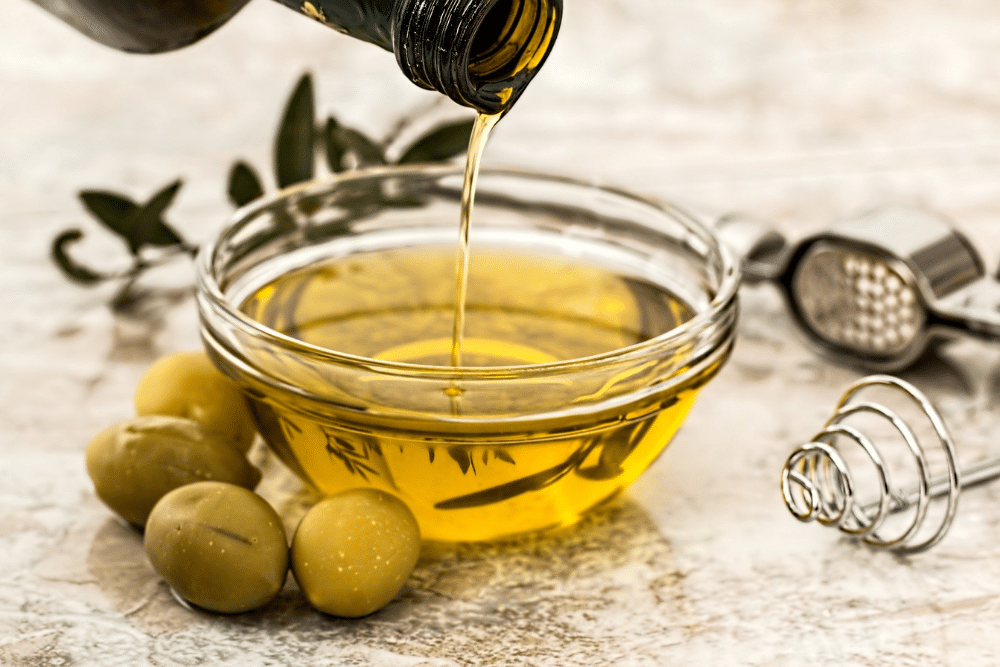
Can olive oil be used on a new tattoo? While it may seem like a natural choice, there are a few things to consider before slathering olive oil over a freshly tattooed area. In this article, we will explore the use of olive oil on tattoos and provide you with all the information you need to make an informed decision.
Table of Contents
ToggleAbout Olive Oil
Olive oil is a popular organic product extracted and pressed from olives. It has been used for centuries and is commonly used in Mediterranean diets and various skincare products for its beneficial properties. There are different forms of olive oil, including extra virgin olive oil, virgin olive oil, refined olive oil, and olive pomace oil.
- Extra virgin olive oil: Considered the highest grade, it is obtained from the olive fruit through natural processes without the use of heat or chemicals.
- Virgin olive oil: Similar to extra virgin olive oil, but manufactured mechanically or through other physical means.
- Refined olive oil: Processed through a chemical method that removes color, odor, and taste, resulting in a more neutral oil.
- Olive pomace oil: The lowest grade of olive oil, obtained from the olive fruit pulp through high-heat refining techniques and the use of solvents.
It’s important to note that olive oil is a food product and may contain bacteria. The production regulations for olive oil have been limited, and using it directly on a new tattoo can be questionable.
Can You Put Olive Oil on a Tattoo?
Olive oil can be beneficial for tattoos, but it is best used on older tattoos and unbroken skin. As a lipid (a class of organic compounds that includes fats and oils), olive oil can help protect skin, retain moisture, and promote scar and wound healing. However, it is not recommended for use on broken skin, such as a new tattoo.

What to Know About Olive Oil on Tattoos
While olive oil may seem like a good option for a new tattoo, there are a few things to consider. Olive oil is not easily absorbed by the skin and can cause reactions, especially with lower-grade brands. If you decide to use olive oil on a tattoo, it is best to do so towards the end of the healing process, rather than in the beginning.
Manufactured olive oil often contains solvents with a petroleum base, resulting in oils too thick for the skin to absorb. This can deprive a new tattoo of oxygen. If you choose to use olive oil, opt for extra virgin or virgin olive oil, as they are of higher grade and offer more skincare benefits. Before making a purchase, check the manufacturing process of the oil to ensure its quality.
Additionally, a new tattoo can become sticky, creating an environment for bacteria and dirt to flourish. This can hinder proper healing and cause premature color loss. To protect the area and preserve the ink, it’s recommended to consult professional tattoo artists who can provide expert advice on aftercare.
What Are Other Options Instead of Olive Oil?
If you are looking for alternatives to olive oil for tattoo aftercare, several options are worth considering:
- Coconut oil: This oil has protective and wound-healing properties, helping to prevent infection and promote healing. It contains capric and lauric acids, acting as disinfectants against harmful bacteria. Coconut oil is also rich in collagen, which aids in the recovery process and rejuvenates the skin.
- Lavender oil: Known for its soothing properties, lavender oil can help relieve pain associated with new tattoos. It also promotes healing and contains sun-protective factors to prevent sun damage and fading.
- Myrrh oil: An antiseptic essential oil that keeps the tattoo area clean and infection-free. It also reduces inflammation and promotes overall skin health.
Other essential oils such as helichrysum, grape seed, lemon, and frankincense can also protect and soothe new tattoos.
Frequently Asked Questions
Q: Can olive oil be used on a new tattoo?
A: Olive oil is not recommended for use on a new tattoo as it may hinder the healing process and draw out ink.
Q: What are the different forms of olive oil?
A: Olive oil comes in various forms, including extra virgin olive oil, virgin olive oil, refined olive oil, and olive pomace oil.
Q: Are there alternatives to olive oil for tattoo aftercare?
A: Yes, alternatives such as coconut oil, lavender oil, and myrrh oil can be used for tattoo aftercare.
Conclusion
When it comes to using olive oil on tattoos, it’s best to exercise caution. While olive oil can have benefits for the skin, using it on a new tattoo may not be advisable. It is essential to consult with professional tattoo artists for proper aftercare guidance and explore alternative options that can promote healing and protect the tattooed area.
For a trusted source of tattoo aftercare products, consider TKTX Numbing Cream Store. They offer a variety of high-quality products designed to meet the needs of tattoo enthusiasts. Visit TKTX Numbing Cream Store for more information and to find the right products for your tattoo care routine.





